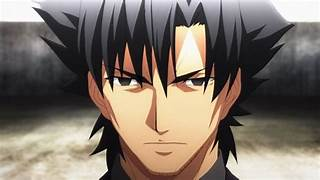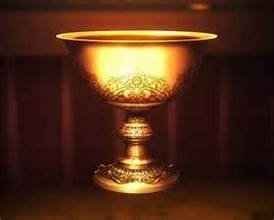Self-conscious emotions
In this post, I explain Kiritsugu's experience of self-conscious emotions. I discuss these emotions in reference to the specific incident that triggered their generation.
First, I think Kiritsugu never really expressed any kind of self-conscious emotions related to the perception of success. For example, although he was confident in his ability to win the Holy Grail War, he never seemed proud (i.e., pride) of himself. Even after defeating one of the six other mages that participated in the war, he did not seem proud about it but rather reacted to it as if it was nothing special. He also never showed any signs of arrogance or over-confidence (i.e., hubris); he always seemed deeply focused on defeating the other mages, and he did not have the composure to express such emotions. I think his lack of these emotions stems from how he viewed success in this Holy Grail War. For him, success in this war meant obtaining the Holy Grail, and what occurred during the war did not have much of a meaning; they were merely obstacles that he had to overcome. In other words, it was only when he obtained the Holy Grail that he felt a sense of success, and since this happened at the end of the show, Kiritsugu did not express any success-related emotions in most parts of the show. Also, even when he obtained the Holy Grail, he did not seem to be proud but seemed relieved. Because he stressed himself so hard to obtain the Holy Grail, I do not think he had the composure to engage in attribution formation when he finally defeated the last mage. Rather, he was only experiencing outcome-dependent emotions, such as joy.
While Kiritsugu did not express any success-related self-conscious emotions during the show, there were plenty of scenes where he expressed failure-related self-conscious emotions, especially guilt. His feelings of guilt stem from his past when he was unable to kill Shirley. Because he could not kill his friend when she actually begged him to do so, she turned into a monster and turned the other islanders of Alimango into zombie-like creatures. Kiritsugu could not forget this incident and kept blaming himself for not being able to kill her. In other words, he attributed his failure to kill Shirley to the fact that he ran away from her (i.e., a specific behavior), and such an attribution repeatedly made him experience the self-conscious emotion of guilt. At the same time, I also felt Kiritsugu attributed his failure to kill Shirley to his global self (i.e., his mental weakness) and thus was experiencing the self-conscious emotion of shame as well.
After this incident at Alimango island, Kiritsugu trained himself and indeed became somewhat mentally stronger, but this training also turned him into a mercenary who made his living from killing mages. However, he still was not entirely cold-hearted and was suffering from the emotions of guilt and shame. This is the reason why I like Kiritsugu; he is indeed an unhuman-like killer without much emotional diversity, but all his behavior stems from his sense of guilt and wanting to fix things, showing that he is actually a human being with emotions.
This blog was a fun activity as I was able to write a lot about my favorite character. Thank you for this opportunity!




Comments
Post a Comment